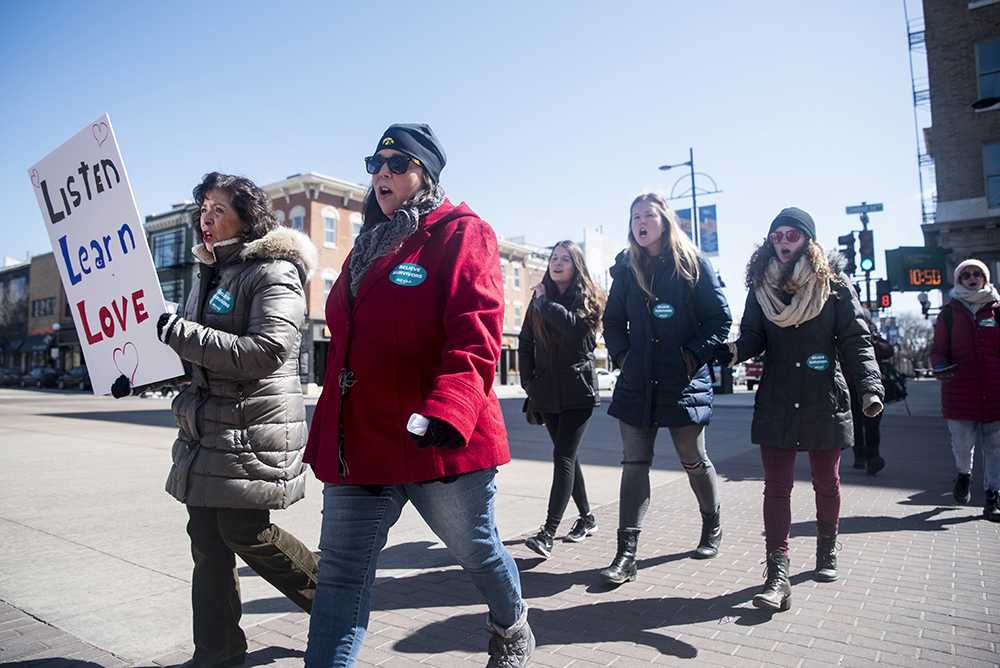On April 7, chants could be heard up and down Washington Street: “Whatever we wear, wherever we go, yes means yes and no means no.”
Community members gathered at College Green Park for the National March Against Rape Culture. Numerous speakers shared personal stories, discussing how to fight against rape culture and the need to listen and learn.
Following the rally, the group walked down Washington Street at 10:30 a.m. to the IMU, chanting “Still not asking for it” and “We grab back.”
At the IMU, people participated in workshops addressing consent in communities of color and consent in long-term relationships and dismantling rape culture.
Elena Greene of the Rape Victim Advocacy program planned and organized the event.
“Everybody should have the right to walk down the street, to go on a date, to interact with a family member or friend without being assaulted,” she said. “Something that we don’t do enough in this country is listen, like genuinely shut up and listen. So we have some wonderful people here for you to shut up and listen to.”
The first speaker was Hira Mustafa, the president-elect of the UI Student Government.
“I recognized how difficult it to create change within this conversation because it took me three years to pass a policy in high school that just said you shouldn’t sexually assault people,” she said.
Pat Dolan, an adviser for the social-justice major and a UI lecturer, encouraged activism in the community.
“You have to keep talking, you have to come out in the cold, you have to be uncomfortable, and you have to do it even though it looks like it’s not working,” Dolan said. “It’s [men’s] job to figure things out; women have better things to do than ending your ignorance.”
City High juniorMaya Durham said that she was 9 when she heard catcalls for the first time and 12 when she was followed for the first time in downtown Iowa City.
“We are working every day to change the culture in schools, and we will keep fighting no matter what,” Durham said.
Barb Duder, who works for Washington County Coalition Against Sexual Assaults, said funding cuts have reduced access and education and that affects the community’s ability to meet the needs of survivors.
An intersex antiviolence activist, Stormy O’Brink, talked about including transgender survivors in antiviolence efforts.
“We don’t have resources that meet our needs,” O’Brink said. “When services are constructed, our exclusion starts at the intake forms with male/female or ‘other.’ I am not some ‘other.’ ”
Ryan Hall, an organizing fellow with NextGen Iowa and a UI undergraduate, spoke about what rape culture has done to them and other “male-bodied” people and what other “male-bodied” people should do to undo rape culture.



